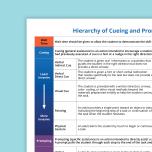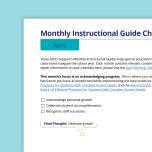
Significant Cognitive Disabilities, Instruction

Significant Cognitive Disabilities, Instruction

Significant Cognitive Disabilities, Inclusion, Instruction

Significant Cognitive Disabilities, Inclusion, Instruction

Significant Cognitive Disabilities, Inclusion, Transition

Significant Cognitive Disabilities, Instruction

Significant Cognitive Disabilities, Instruction, Assistive Technology

Significant Cognitive Disabilities, Inclusion, Transition

Significant Cognitive Disabilities

Significant Cognitive Disabilities

Significant Cognitive Disabilities